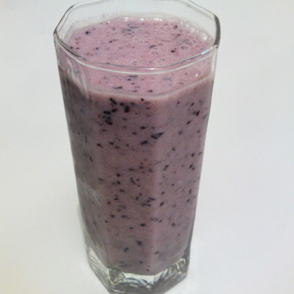Alpha-lipoic acid

Important alpha-lipoic acid facts
Lipoic acid (also known as alpha-lipoic acid or thioctic acid) is a coenzyme which is present in the mitochondria of cells. Lipoic acid is an enzyme helper, which works with enzymes to produce energy by breaking down sugar (in the Krebs cycle).
Alpha-lipoic acid (ALA) is a powerful antioxidant which is both water and fat soluble. This means that lipoic acid can deactivate both water and fat soluble free radicals.
The body usually makes enough of its own lipoic acid, but if there is an excess then lipoic acid behaves like an antioxidant.
An important part of lipoic acid's antioxidant activity is that it actually helps to recycle the antioxidant activity of other antioxidants. Usually when an antioxidant scavenges for free radicals, the antioxidant is used up and disappears (along with the free radical), but lipoic acid can actually regenerate itself and other antioxidants so that they can all be used again and again to scavenge for free radicals.
- Lipoic acid is approved in Germany to treat conditions such as diabetic and alcoholic polyneuropathies and liver disease
- Lipoic acid speeds up the removal of glucose from the blood, an important effect for people with glucose problems, such as diabetics
- An isomer of lipoic acid, called R-Alpha-Lipoic Acid is the form that is found naturally in the body
- Lipoic acid is quickly absorbed when taken orally and once inside cells is quickly converted to its most potent form, dihydrolipoic acid
- Lipoic acid is found in many foods - potatoes, carrots, broccoli, beets, yams, red meat
- Lipoic acid is often referred to as the "universal antioxidant"
Alpha-lipoic acid and health
- Diabetic neuropathy - several studies on people with this condition showed significant reduction in pain and better blood flow in the extremities
- Diabetes - several studies have shown that lipoic acid increases glucose uptake and utilisation (thereby normalising blood glucose levels) and reducing the risk of complications of diabetes
- Atherosclerosis - some studies have shown that lipoic acid slows or stops the development of atherosclerosis (diabetics are at higher risk for this condition), from lipoic acids's antioxidant and metabolic effects
- Heart health - a recent study showed that lipoic acid prevented the oxidisation of LDL ("bad") cholesterol (this is an indicator of heart disease) in healthy people. Other studies have shown that lipoic acid can prevent or reduce cell and tissue damage in heart disease and stroke
- Ageing - as people age, levels of lipoic acid naturally decreases, while free radical activity increases. Lipoic acid works to increase antioxidant activity and destroy free radicals
- Cancer - one study has shown that lipoic acid inhibits the promotion of inflammation and genetic changes that have been linked with the development of cancer
People who wish to take an alpha-lipoic acid supplement should talk to a medical professional BEFORE taking it.
Alpha-lipoic acid recommended intake
Dosage of alpha-lipoic acid depends on the condition that is being treated. A medical doctor and/or alternative health care provider can advise on individual cases - this information is provided as a guide only:
| Lifestage | Age | Amount (per day) |
|---|---|---|
| INFANTS | 0-12mths | Not recommended |
| CHILDREN | 1-8yrs | Not recommended |
| CHILDREN | 9-18yrs | Seek medical advice before taking it |
| ADULTS | 19-50yrs |
50-200mg per day > |
| SENIORS | 51+yrs | 50-200mg per day |
| PREGNANT | Not recommended - seek medical advice | |
| LACTATING | Not recommended - seek medical advice |
Advertisement
Types of alpha-lipoic acid supplements
Alpha-lipoic acid supplementation is available in the following ways:
- Capsules - lipoic acid powder is added into capsules
- Tablets - lipoic acid powder is compressed and formed into a tablet
- Soft gel Capsules - filled with lipoic acid liquid
Alpha-lipoic acid supplementation checklist
- Check the label of ingredients for preservatives and colours
- Doses up to 600mg have been well tolerated in trials - this high dosage level should only be taken under medical supervision
- Sometimes other supplements are added to strengthen its effectiveness, such as vitamin H (biotin)
- Can be taken with or without food - no major adverse effects have been found if you don't have it with food
Alpha-lipoic acid works best with
Overdosage, toxicity and cautions for alpha-lipoic acid
Very few side effects have been reported from the use of lipoic acid. Skin rashes are the only side effects that have rarely been reported.
Cautions
- People with diabetes - lipoic acid supplements can lower blood glucose levels, so people on medication for diabetes who want to take this supplement should have their condition regularly monitored, to ensure they do not develop hypoglycaemia
- Women who are pregnant and breastfeeding - should not take lipoic acid supplements, as there is no confirmed data on safety of use in pregnancy or lactation
- People taking thyroid medications - studies have shown that lipoic acid supplements can affect thyroid hormones and people taking thyroid medications should seek medical advice BEFORE trying lipoic acid
Advertisement
References
- Cui X, Zuo P, Zhang Q, et al. Chronic systemic D=galactose exposure induces memory loss, neurodegeneration and oxidative damanage in mice: Protective effects of R-alpha-lipoic acid. J Neurosci Res. 2006 Mar 22
- Groff J L, Gropper SS, Hunt SM, Advanced Nutrition and Human Metabolism. West Publishing, USA, 1995
- Hagen TM, Ingersoll RT, Lykkesfeldt J, et al. (R)-alpha-lipoic acid-supplemented old rats have improved mitochondrial function, decreased oxidative damage, and increased metabolic rate. FASEB J. 1999; 13:411-418
- Hager, K, Marahrens A, Kenklies M, Riederer P, Munch G. Alpha-lipoic acid as a new treatment option for Azheimer type dementia. Arch Geron Geriatr 32 (3): 275-282 (2001)
- Tirosh O, Sen CK, Roy S, et al. Neuroprotective effects of alpha-lipoic acid and its positively charged amide analogue. Free Rad Biol Med. 1999; 26:1418-1426
- Voloboueva LA, Liu J, Suh JH, Ames BN, Miller SS. R-alpha-lipoic acid protects retinal pigment epithelial cells from oxidative damage. Invest Ophthalmol Vis Sci. 2005 Nov;46(11):4302-10
Last reviewed 21 April 2019

 Basics recipes
Basics recipes Breakfast recipes
Breakfast recipes Dessert recipes
Dessert recipes Dinner recipes
Dinner recipes Lunch recipes
Lunch recipes Snacks recipes
Snacks recipes



